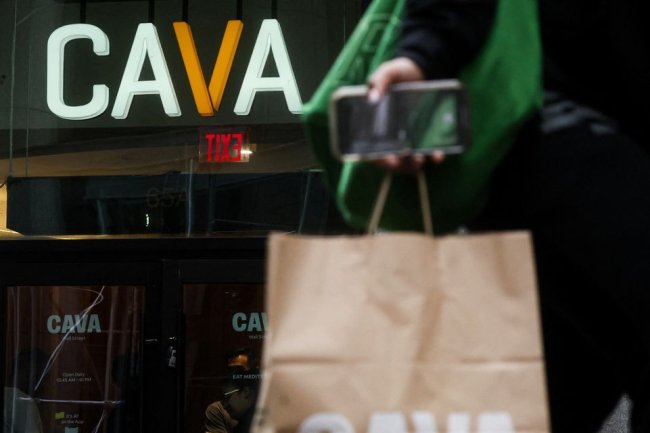Muslims vs. Democrats: A Story of Betrayal
Disputes over sexual ideology put to a test the left’s commitment to cultural diversity. By Shadi Hamid July 27, 2023 6:16 pm ET Police oversee a protest in Hamtramck, Mich., June 24. Photo: Bill Pugliano/Getty Images Hamtramck, Mich., a Detroit enclave with 28,000 people, has the first all-Muslim City Council in American history. When it was inaugurated in January 2022, no one expected it to get crosswise with local Democrats. Yet local liberals have erupted against the council in a clash that is a microcosm of the national battle over religious freedom, tolerance, and the future of the Democratic Party. The council passed a resolution in June prohibiting gay-pride flags from being displayed on city property. Former Mayor Karen Majewski described the decision as a “betrayal.” She and other Democrats felt they


Police oversee a protest in Hamtramck, Mich., June 24.
Photo: Bill Pugliano/Getty Images
Hamtramck, Mich., a Detroit enclave with 28,000 people, has the first all-Muslim City Council in American history. When it was inaugurated in January 2022, no one expected it to get crosswise with local Democrats. Yet local liberals have erupted against the council in a clash that is a microcosm of the national battle over religious freedom, tolerance, and the future of the Democratic Party.
The council passed a resolution in June prohibiting gay-pride flags from being displayed on city property. Former Mayor Karen Majewski described the decision as a “betrayal.” She and other Democrats felt they deserved gratitude for defending and supporting Muslims against Donald Trump’s travel ban on some Muslim-majority countries.
The Trump era brought major gains for American Muslims. After Barack Obama largely kept them at arm’s length during his presidency, the Democratic Party embraced Muslims as a core constituency in its patchwork coalition of minority groups. For a time, being loudly and ostentatiously pro-Muslim was a reliable way to signal one’s anti-Trump bona fides. According to a 2016 survey by my Brookings Institution colleague Shibley Telhami, few things predicted partisan affiliation more accurately than attitudes toward Muslims and Islam.
But Muslims who were brought into the Democratic tent didn’t necessarily align themselves with the party’s evolving views. Asma Uddin, in her book “When Islam Is Not a Religion,” describes “a tacit agreement that Muslims, as religious believers, will never challenge any of the rights championed by the Left, such as a progressive vision of gender or sexual equality.” Muslims became an integral part of the party not as a faith community with distinct theological commitments but as a “marginalized” group requiring protection from Republican bigotry.
For a time the bargain appeared to be holding and even solidifying. According to a Pew Research Center survey, in 2007 only 27% of American Muslims said homosexuality should be “accepted by society.” By 2016 that number had jumped to 52%. Many Muslims justified the shift by arguing that while same-sex relationships may be haram—forbidden by Islamic law—they weren’t so under American law.
But during the Trump years, the Democratic Party veered sharply to the left on social and cultural issues. The Republican Party lost interest in Muslims, with Mr. Trump neglecting to antagonize them during his 2020 re-election bid. The new enemy was “wokeness,” and a growing number of Muslims found themselves on the GOP side of that divide. According to the AP VoteCast Survey, as many as 35% of Muslims voted for Mr. Trump in 2020, compared with 8% to 13% in 2016.
The Democratic Party’s cultural turn has intensified. In March the Montgomery County Board of Education—the largest school district in Maryland, in a Democratic stronghold with a significant Muslim population—informed parents that they would no longer be notified when their children were reading from the school’s approved “selection of over 22 LGBTQ+-inclusive texts,” and that no opt-outs would be tolerated. Hundreds of Muslim parents have since sounded out in protest, some of them joining Christians in filing a First Amendment lawsuit against the mandate.
The kind of Islamophobia not so long ago associated with the GOP is now making an appearance among Democrats. Montgomery County Council member Kristin Mink said that this issue casts “some Muslim families on the same side of an issue as white supremacists and outright bigots.” In Hamtramck, Ms. Majewski, who lost her re-election bid in 2021, sounded a similar tune: “We supported you when you were threatened—and now our rights are threatened, and you’re the one doing the threatening.”
The left’s dismissal of Muslims as bigots echoes old right-wing insinuations that Muslims were more loyal to Shariah than to their country. Yet when Hamtramck’s City Council passed its ordinance, it did so by appealing to love of country and liberal neutrality, letting only national, state, city and prisoner-of-war flags to be flown. Mayor Amer Ghalib
argued that the city government should maintain neutrality on contentious religious, racial and political questions.Republicans doubtless sense an opportunity to make common cause with minorities while driving a wedge in the Democratic coalition. It’s easy enough for the left to dismiss white evangelical Trump supporters. But when the party does the same to Muslims, who for years had been loyal Democrats, it demonstrates its disrespect for actual cultural diversity.
Mr. Hamid is a senior fellow at the Brookings Institution, research professor at Fuller Seminary and author, most recently, of “The Problem of Democracy: America, the Middle East, and the Rise and Fall of an Idea.”
Journal Editorial Report: Charles Payne interviews the Georgia State Representative Mesha Mainor. Images: AP/Fox News Composite: Mark Kelly The Wall Street Journal Interactive Edition
What's Your Reaction?

















